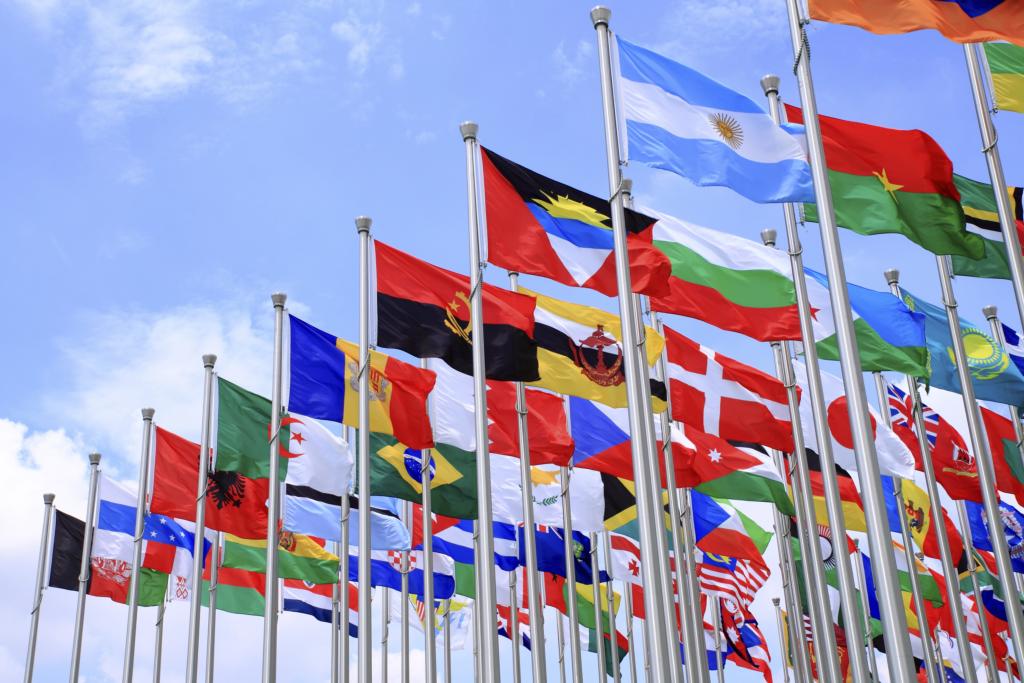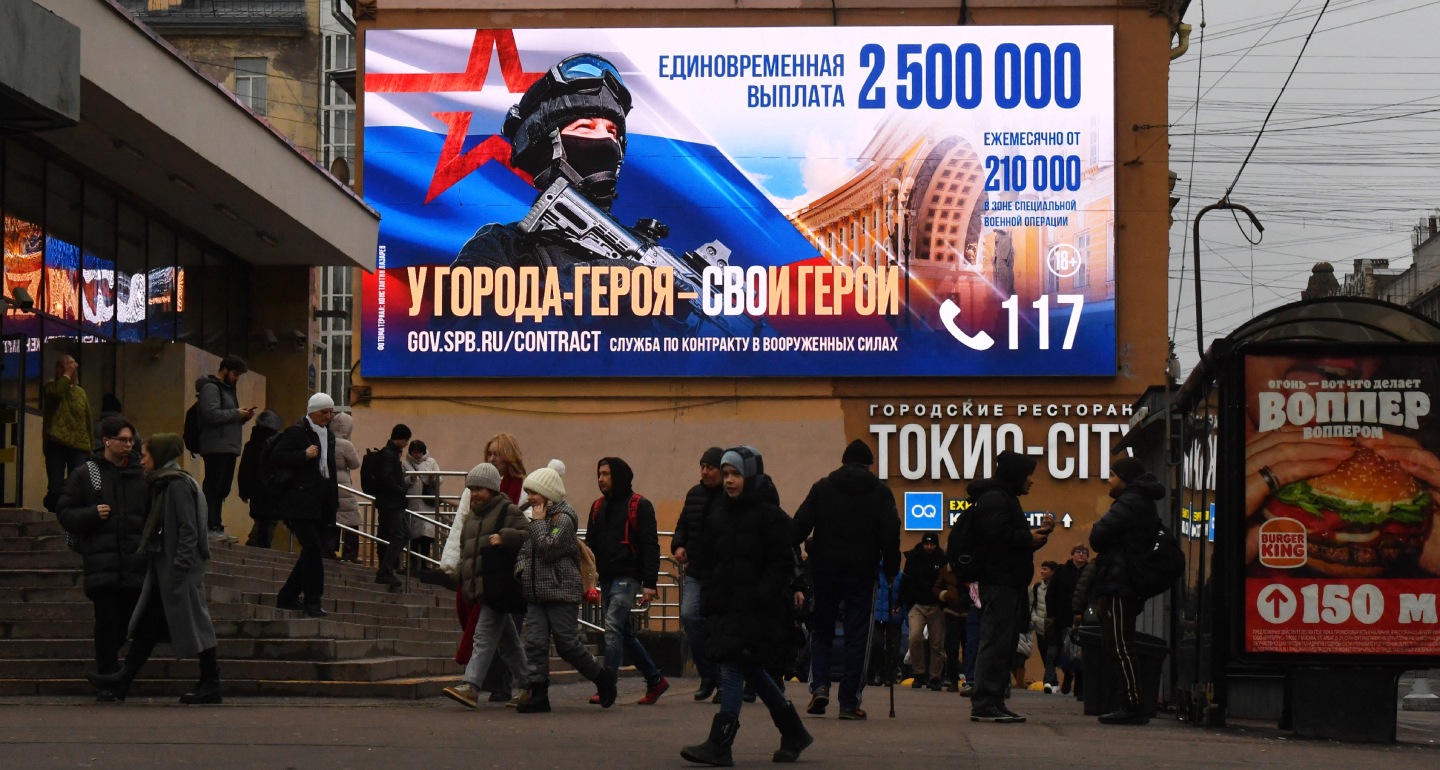This essay is part of a series of articles, edited by Stewart Patrick, emerging from the Carnegie Working Group on Reimagining Global Economic Governance.
After more than a decade of continuous crises, the neoliberal regime has lost traction. On the municipal and national levels, governments are buying back formerly privatized assets such as energy production and water supply. The remunicipalization of water supply is an ongoing global trend, as is deprivatization in healthcare and energy supply. Even in the United Kingdom, where previous governments have pioneered neoliberal policies and made extensive efforts to privatize public assets, train services increasingly are being renationalized and further investments into public ownership of British railways are all but certain with the new Labour government. Joe Biden’s administration invested trillions of dollars into U.S. infrastructure, families, jobs, and climate change action. Changes in economic governance also are well on their way at the regional and international levels. The European Union endorses green transition and the circular economy concept. The Organisation for Economic Co-operation and Development (OECD) has investigated into economic thinking “Beyond GDP.” And the International Monetary Fund (IMF) recently introduced the Resilience and Sustainability Trust, aimed especially at low-income countries hit hard by climate change and vulnerable to external weather shocks. Yet, while elements of a new thinking can be identified around environmental, ethical, and social concepts, a new global consensus remains to be reached.
This raises the question as to whether anything may be learned from earlier shifts in the dominant principles, norms, and rules of global economic governance. How did such regime shifts come about in the past? And how are new ideas generated, discussed, and finally embraced within global governance? Since the early days of the League of Nations more than a century ago, transnational policymaking has been concerned with addressing the challenges for a peaceful global order. A characteristic practice of policymaking was established roughly around this time, one that is still enacted in almost unchanged ways today. Those engaged in shaping ideas for global order are an interconnected mix of actors, comprising officials from international organizations and foreign ministries, and representatives from research institutes, think tanks, universities, private foundations, and other civil society organizations. Scholars, experts, and diplomats work together on committees, meet at workshops or colloquia, and explore overarching shared questions, such as the appropriate relation between the state and the economy or the effect that trade has on peace. Usually, mixed committees are appointed, combining various nationalities, institutional backgrounds, and scholarly perspectives.
A look backward on regime change within this culture of global economic governance suggests three historical lessons. First, and perhaps counterintuitively, the roadmap to a new governance regime is not typically the product of external forces but of the internal development of novel, policy-relevant ideas. The archipelago of political actors, knowledge experts, and institutions that form the world of global governance shares a core task: always have a new plan in the drawer. Frequently, these ideas are developed long before they acquire political traction. Second, crises drive shifts in economic governance by challenging regnant orthodoxies and allowing new ideas to come to the fore. In many ways, a hegemonic regime is characterized by its confidence in the future. Crises cast doubt and insecurity over it. Actors who identify a situation as a crisis and can articulate problems and solutions with vocabulary and arguments that are seen as most persuasive and legitimate are best positioned to set a future agenda. Much of the struggle of ideas in global governance is thus about what might be called “owning the crisis.” Defining, analyzing, and mitigating crises is a crucial political struggle. Third, the quality of the institutions performing crisis management and setting policy guidelines is decisive. The capacity and legitimacy of the institutions negotiating the crises are decisive for the outcome of the shift. They need to have sufficient resources and members, and they need to be accepted as the vehicles bringing about change and guidance. If the institutional landscape from which new ideas emanate lack capacity and legitimacy, their impact decreases.
Boom or Bust? Early Neoliberalism, Business Cycle Analysis, and the League of Nations
In the wake of the First World War, the first generation of global governance institutions formed and clustered around the League of Nations. The mixed committees formed in the various institutions attached to the League were tasked with research on economic relations and crises, and with coming up with solutions. Occasionally, this process made for strange intellectual bedfellows—at least in hindsight. To comment on Bertil Ohlin’s fundamental report on The Cause and Phases of World Economic Depression (1931), for instance, the League convened the liberal business cycle expert Friedrich von Hayek, then still co-director of the Austrian Institute for Business Cycle Research in Vienna, together with Ludwig von Mises alongside the Italian fascist and statistician Corrado Gini, and a host of further delegates from macroeconomic research institutes.
Conscious of the idea that economics shape societies, the League was particularly interested in the emerging field of macroeconomics, with its focus on business cycles in particular and international economic relations more generally. It drew on the expertise of renowned experts, particularly the first generation of early neoliberal scholars, which included Gottfried Haberler, Wilhelm Röpke, Friedrich von Hayek, and Michael Heilperin. This generation had a powerful impact on the League’s approach to macroeconomics in the early to mid-1930s. One of their primary subjects of concern was explaining recurrent economic cycles and crises, which they generally attributed to the mismanagement of an economic boom.
Although this basic neoliberal argument reappeared later in the twentieth century, the analytical focus on economic booms was crushed with the publication of John Maynard Keynes’s General Theory of Employment, Interest, and Money (1936). Keynes’s work came to dominate the League of Nations’ policy outlook during the mid- to late 1930s, albeit in disagreement with another of the League’s prolific economic consultants, Jan Tinbergen. Faced with an economic depression of unprecedented severity and length, the analytical spotlight naturally shifted. It blamed earlier policies for mismanaging the boom, which had allowed wages to rise faster than prices, abandoned government controls, and embraced a laissez-faire approach in the early 1920s against the backdrop of a crumbling gold standard and a constrained international financial framework. Looking forward, it sought to manage the bust by putting state interventions, public spending, the goal of full employment, and modified fiscal and tax policies as well as the international financial structure more prominently on the agenda.
Although Keynes had emerged as a leading figure of economic thought during the 1920s, reminding the League and political actors in general of the need to carefully look at the basic international economic conditions in which political decisions are situated, he had been notably absent at many of the transnational meetings and collaborations of the 1920s and 1930s. Invited to the League’s International Studies Conference in London to discuss “The State and Economic Life” in May 1933, he demurred that he had to “make it a rule to cut out almost entirely occasions for expounding or discussing orally the sort of questions about which I write.” When the General Theory came out, Keynes, with one strike, was able to own the crisis and gained necessary political and intellectual support and vindication within the institutional landscape to inflict change on the emerging regime of global economic governance.
The Long Run of Keynes
Keynes’s ideas soon came to be ubiquitous for thinking about how to tackle a crisis. Among expert colleagues, to be sure, Keynes had both supporters and critics, the latter including French economist Jacques Rueff. Similarly, within some institutions, Keynes’s policies were seen increasingly as unfit for periods of growth. As early as the 1950s, the Bank for International Settlements—otherwise a key player in a truly Keynesian operation, the European Payments Union from 1950 to 1958—started to cast doubt on Keynes’s usefulness for further boom policies in its annual reports. Nevertheless, the unprecedented postwar growth throughout the West, and even more beyond its confines, reinforced the hegemony of Keynesianism. The need for a new policy mix seemed unnecessary, as the world enjoyed what German economist Herbert Giersch called the “best of both worlds: planning and the price mechanism” (1952).
The magic of Keynesianism wore off during the 1970s. The U.S. government abrogated the postwar Bretton Woods agreement in 1971, decoupling the dollar from the gold standard. The same era saw a particularly sticky situation of so-called stagflation, an unusual coexistence of economic stagnation and inflation. Established policies could not stave off rising mass unemployment and plummeting economic performances. The suddenly resurgent neoliberals, building on their older macroeconomic credo of regarding economic crisis as the result of a mismanaged boom, painted all state-based action as inefficient and an obstacle to instead of a catalyst of freedom. The solutions they offered included increasing radical demands for free markets. As the neoliberals explained it, the taproot of economic crisis was the inefficient state meddling that handcuffed capital mobility and smothered the fires of economic dynamism. Soon, free-market neoliberals would come to “own the crisis.”
As with Keynes in the 1930s, the neoliberals dominated the interpretation of the crisis of the 1970s. “Reform,” once a call for social progress, now implied a radical set of free-market interventions—with tax cuts, austerity measures, privatization, financialization, and labor market flexibility—as tools that should have been applied in the past to avoid the crisis of the present. Significantly, the ideas influencing policymakers and providing a broader liberal ideological fundament came from old neoliberals like Hayek and Milton Friedman (and people like Giersch who had abandoned their taste for more planning), as well as a broader intellectual movement within the landscape of global governance following the OECD’s McCracken Report from 1977, which opened up to new policies of labor market flexibility and privatization. In fact, the same institutional landscape that had paved the way for Keynesianism (after early neoliberal influence on the League), now enabled the rise of a new, more radical neoliberalism. Hayek, Friedman, and other neoliberals did not appear as outsiders from out of the blue. Rather, they were well-known experts in macroeconomics and actors within the landscape of economic global governance. In fact, Friedman precisely described the role of experts within global economic governance in his foreword to the 1982 edition of his Capitalism and Freedom (1962). The ideas picked up in a crisis need to be already “lying around,” as he put it. What became the neoliberal canon—privatization, financialization, austerity, capital mobility, deregulation, and free-market globalization—had been fleshed out and formulated before the crisis of the 1970s.
Other institutions followed the OECD’s move toward a new set of policies. In the 1980s, the World Bank focused on the concept of governance—conceived as effective and adequate guiding principles—as opposed to government—which was associated with inefficiency and arbitrary decisions. After little more than a decade of struggling to find a remedy for the economic crisis, the new language emerged in full force by the mid-1980s throughout the institutional landscape of economic governance. The triumph of free-market neoliberalism seemed complete.
Beyond Neoliberalism? The Dawn of a New Regime in Economic Global Governance
Importantly, however, global governance was never fully global. Western actors, ideas, and interests dominated within relevant global institutions. Today, extreme inequalities within and between societies linger. Deep political rifts within Western democracies remain, and rising self-confidence and demands from non-Western actors are framed in ways critical of established global economic governance institutions and in favor of promoting their own approaches. Even inside the older Bretton Woods institutions and international organizations, self-critique is evident. The three broad historical patterns of regime change mapped out above are discernable but have not yet resolved into a new consensus or hegemonic policy framework. Actors within global economic governance have begun to propose constructive changes. Many have spoken in dramatic language of a deep-cutting crisis, sometimes called a polycrisis, yet a new narrative that “owns” the crisis is still in the making. In the meantime, the institutional landscape of global economic governance stands on shaky feet, its capacity and legitimacy decreasing.
On a more constructive note, a new and comprehensive narrative for global economic governance seems to be coalescing today. Once again, it has taken many years to grow within the landscape of governance institutions and actors. After the shocks of the financial crises in the late 2000s and the more recent COVID-19 pandemic, both the free-market paradigm and the legitimacy of the experts populating the institutions of global governance have begun to erode, facing critiques on issues from politics to economics and epistemology to ethics. Additionally, various new and rediscovered approaches to economics share an awareness of the limits of our planet’s resources. Growing out of various critical movements—“beyond GDP,” “degrowth,” “circular economy,” “green transition”—and, forcefully amplified by climate change, more inclusive notions such as “planetary politics” or “well-being economy” are starting to take root, not only in the shape of new think tanks and advocacy groups but among the cast of global governance scholars and leading economists.
In one prominent example, in March 2024, Nobel Memorial Prize laureate Angus Deaton published on the IMF’s website a call for the complete overhaul of the economics discipline and its ethics. Like Keynes—who famously said that when the facts change, he changes his mind—Deaton now embraces a new basic perspective, lamenting how economists had forgotten to think about the constitution of their ethics. Similar to the 1930s, when Keynes observed that the public today was “unusually expectant of a more fundamental diagnosis,” there is immense appetite for a new, more progressive approach to global economic governance. Economists promoting a new narrative to defend the roots of liberal democracies are further motivated by the rise of the far right in Europe and beyond, reflected in the recent Berlin Summit Declaration from late May 2024 on the need to make economic governance more bottom-up and “win back the people.”
The first two characteristics of regime change are thus identifiable in today’s global governance settings. First, actors and institutions have embraced critique and produced new perspectives, including concrete institutional arrangements to operationalize and affirm the new narrative. Second, the inability to act in the face of the so-called polycrisis is partially giving way to new, constructive visions of the future. The third important parameter for regime change, the capable and legitimate position of the institutional landscape of global governance, is made more and more difficult by the rebuttal of those very institutions. The United Nations system, the Bretton Woods institutions, the World Trade Organization, and the OECD all face a crisis of legitimacy and scope.
Today’s fundamental diagnosis is thus emerging in a global setting of division and upheaval, in which illiberal right-wing parties, populists, and authoritarian regimes are confident in their interpretations of the past and the future—a confidence that clashes partially with the ethics and practices of Western governments and the wider international institutional settings, and even international law. Institutional renovation needs to take place. Calls for a second Bretton Woods moment reflect such a need. Yet, who will be among those actors populating the institutions? Will the BRICS+ countries continue to erect an alternative landscape of global governance? Will the Global South find new constructive ways to interact with the Global North? A capable and legitimate landscape of global governance is fundamentally important for a regime change to take root. Against the grim alternative of continuous violence, war, and division, all efforts need to focus on the task of renovating the standing, capacity, and legitimacy of global institutions.
Hagen Schulz-Forberg is an associate professor for global and European history at Aarhus University, teaching and writing on the contemporary period with a focus on conceptual history in order to tackle the nexus of power, knowledge, and legitimacy. He studied history, philosophy, and literature at Freie Universität Berlin and graduated in modern European history at St. Antony’s College, Oxford University, before moving to the European University Institute in Florence to write his PhD at the Department of History and Civilization.












